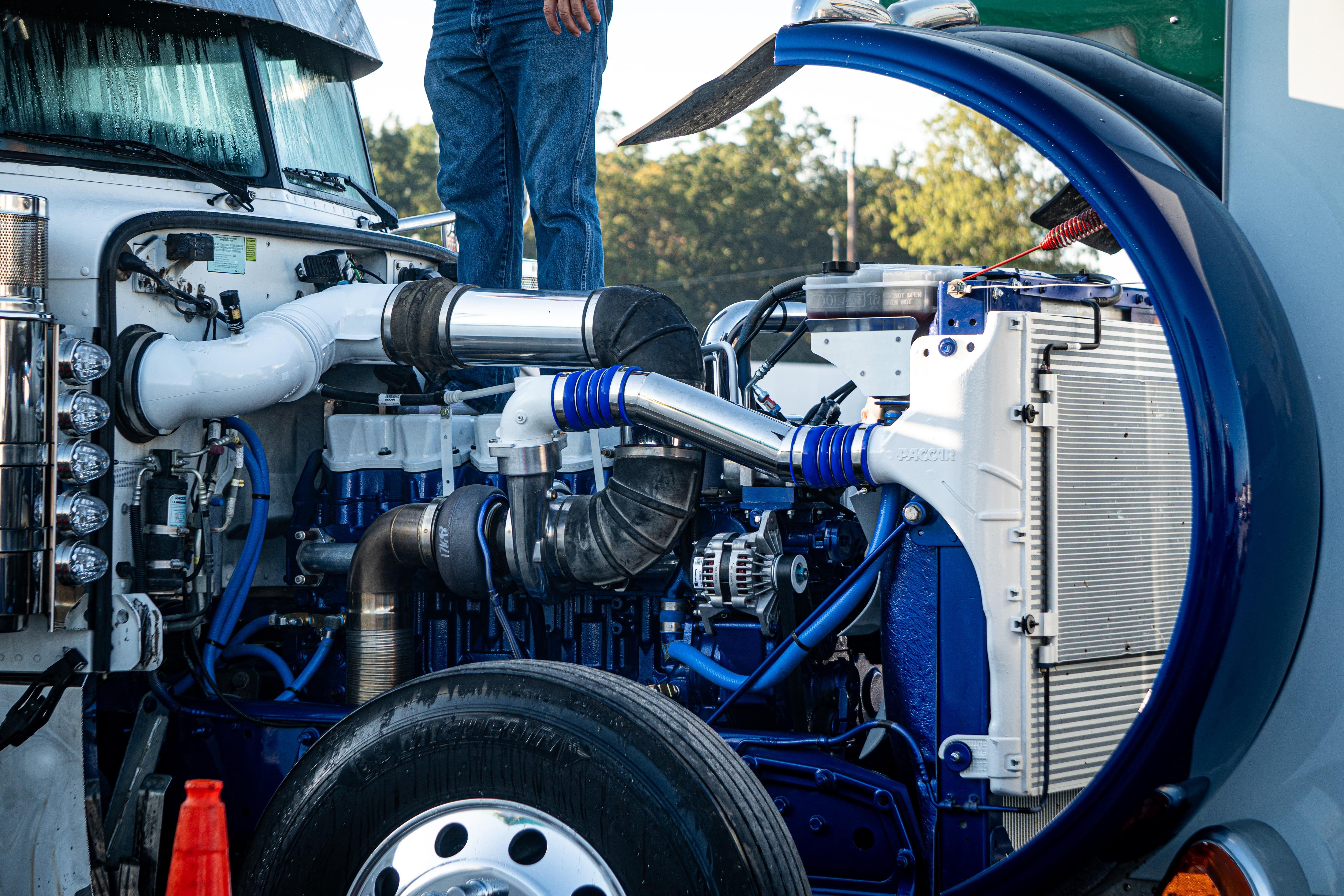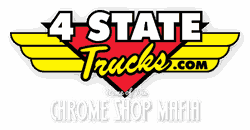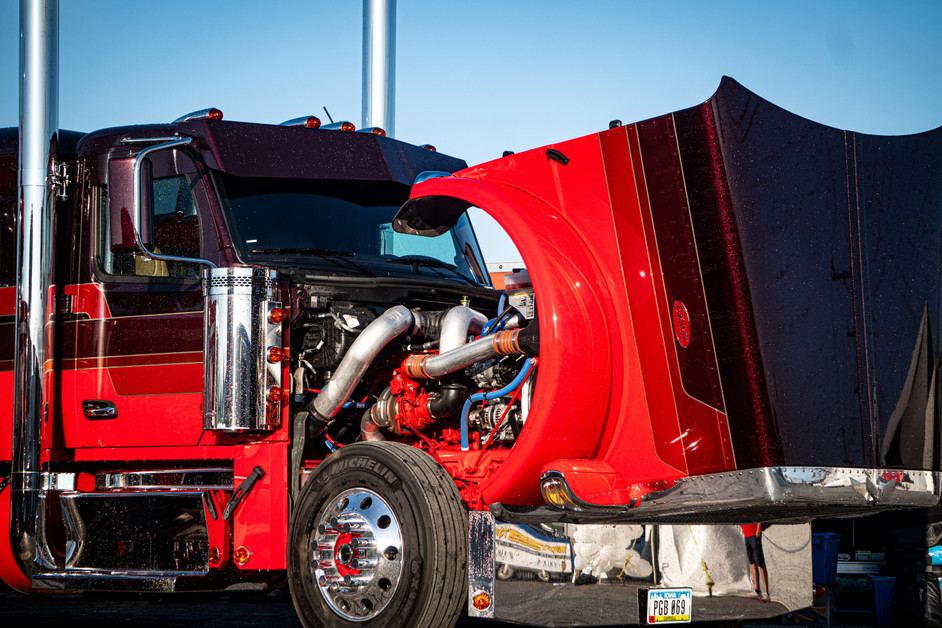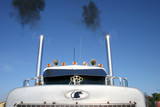Preventative Maintenance Checklist for Semi Trucks
Every truck driver knows one thing: semi-truck repairs are a nightmare for the pocketbook.
Sticking to a solid, consistent maintenance schedule is the best way to prevent this from happening. But like any good habit, it’s something we tend to put off for tomorrow…until it’s too late!
Your truck is your income. Preventative maintenance is a business strategy.
In this post, we’ll cover the need for a preventative maintenance checklist, and some of the common replacement parts you can buy online and ship directly to your specified address.
Why Preventative Maintenance Matters for Semi Trucks

Preventative maintenance can save you a lot of time and money, all while extending the life cycle of your big rig.
Routine maintenance tasks help to improve your vehicle’s performance and safety. As an owner-operator who is managing costs, good PM can lower unexpected overhead costs.
- Lower repair costs (compared to emergency repairs)
- Better fuel efficiency
- Longer lifespan
- Fewer unexpected breakdowns.
Ignoring PM can cost you:
- Costly transmission issues
- Excessive wear
- Roadside failures or hgher risk of accidents
- Potentially a shorter truck lifespan and reduced resale value
Common Issues Prevented by Routine Maintenance Checks
- Overheating (neglecting your cooling system)
- Brake failure (worn-out pads, air leaks)
- Tire blowouts (from poor pressure, uneven tread depth)
- Electrical shutdowns (loose connections)
- Costly aftertreatment screwups (not doing DPF/DEF maintenance)
Essential Maintenance Checks and Frequency
Who Can Inspect Your Truck?
FMCSA: establishes preventative maintenance requirements for most commercial truck inspections.
CVSA: creates the inspection standards and processes that your truck must meet.
State Troopers: they can perform real-time inspections if/when they pull you over.
FMCSA requires there be preventive maintenance done on commercial vehicles.
How to Start a Preventative Maintenance Plan
- How often it’s driven
- Current mileage
- Fuel system
- Weather conditions it drives in
This will help you keep track of when inspections are due; keep a log book (Excel sheet or Binder) with tasks, date, mileage, and next due columns.
Set clear expectations about PM duties. (Fleet managers only); to do PM at scale, use apps like KeepTruckin, Fleetio, SimpleTruckELD.
Keep a running record of cost per mile (helps you budget), performance checks, service repairs, or changes (like adding new semi truck tires).
Daily Driver Inspections (Pre-Trip and Post-Trip)
Pre- and post-trip inspections help you identify and repair budding issues immediately before they become major, costly problems.
The average yearly cost of doing routine mechanical inspections might sound high ($15k average), but it's minimal compared to major diesel truck repair costs in most shops.
The BEST Pre-Trip & Post-Trip Checklist:
- Tire PSI pressure and minimum tread depth (4/32" on steer tires, 2/32" on other tires).
- Brake lights, wiper blades, airline leaks, and loose connections.
- Fluid levels: engine oil, brake fluid, power steering fluid, wiper fluid (TIP: keep spare fluids in your truck just in case you need to top off)
- Suspension components for cracks or wear.
- Walk-around visual check for any leaks and verify that there are no dead marker lights.
Preventative Maintenance — Mileage Bands (Estimated)
- Inspect air filter & fuel filter.
- Quick brake/tire/electrical check.
- DEF system service checks.
- Valve adjustment (per engine spec).
- Inspect doser & DEF quality.
- Check sensors, clamps, CAC leaks.
- Inspect clutch/shift linkages.
- Check differential fluids (per OEM).
- Pressure-test system & cap.
- Inspect hoses, water pump, fan clutch.
Weekly & Monthly Preventative Maintenance Tasks
Weekly:
- Inspect hoses, belts, and filters.
- Re-check your fluid levels.
- Test lights, dash gauges, and your horn.
Monthly:
- Tire rotation and lug nut inspection (rust or moisture buildup)
- Brake system (brake pads, drums, hydraulic/air lines)
- Alignment checks, shock absorbers, bushings, linkages, and suspension
Long-Term Preventative Maintenance Schedule (By Mileage/Timeframe)
Include manufacturers’ recommendations for common service intervals:
- Oil change & oil filter replacement.
- Cooling system flush and replace coolant.
- Transmission service to avoid transmission issues.
- Differential and axle fluid changes.
- Air filter service interval.
Stress differences between truck manufacturer guidelines and actual duty cycles (long-haul vs. severe service).
Seasonal Preventive Maintenance for Commercial Vehicles
Winter checklist:
- Inspect wiper blades, defrosters, check braking system for moisture/ice.
- Monitor air pressure when warm air or cold conditions fluctuate.
- Wash salt off undercarriage to prevent corrosion.
Summer checklist:
- Service cooling system, flush or replace coolant.
- Monitor tire pressure as heat raises psi.
- Check air conditioning and electrical system.
The Most Important Maintenance Needs for Vehicle Performance
Focus on the major components that directly impact uptime:
- ENGINE: engine oil, oil filter, air filter, fuel filter.
- BRAKES: brake pads, brake fluid, brake drums.
- STEERING: power steering fluid, joints, suspension components.
- TIRES: check tread depth, uneven wear, balance and alignment.
- ELECTRICAL: check brake lights, turn signals, wiring to your alternator (not cuts or abbrasions), semi truck battery bank corrosion level, clean terminals.
Preventive Maintenance for Fleet Owners vs. Owner Operators
Fleet managers: Use standardized schedules, compliance logs, telematics tracking. Fleets have a more complex logistical schedule to adhere to if they want to do comprehensive PM across all of their trucks.
Owner operators: Tailor PM tasks to your truck’s maintenance schedule and routes. It's a lot easier to handle since you're in charge of one truck, essentially.
Shop for Diesel Truck Parts at 4 State Trucks
Be prepared for preventative maintenance with our broad selection of mechanical parts for your engine, AC, exhaust, and transmission system. Get any component you need shipped to your preferred location quickly and easily when you shop at 4 State Trucks. Questons about a part? Give us a call!
Recent Posts
-
Fiberglass Fenders vs Aluminum & Poly Fenders: Which Material Wins?
A stylish semi truck fender is among the best way to personalize and cusotmize your big rig. But whe …16th Jan 2026 -
Haul of Fame: The Rat Rod (Custom-Built Peterbilt 359)
Bryan Martin. A Peterbilt 359. Over a decade of scars, stories, and soul. Some trucks come and go …16th Jan 2026 -
How Fibertech's Fiberglass Truck Parts Improve Airflow & Aesthetics
Fibertech truck parts, known for their Fibertech fenders, whale tales, and sleeper roof caps, delive …9th Jan 2026 -
Peterbilt vs Mack: Choosing Between Rugged or Classic Styles
Let’s do a quick breakdown of Mack trucks vs Peterbilt trucks Mack is naturally the cheaper, more af …2nd Jan 2026 -
The Ultimate Guide to DPF Filters & DEF Systems on Semi Trucks
Let’s break down how to maintain peak emissions performance and avoid excessive repairs. In this gui …30th Dec 2025 -
How to Choose the Best Refrigerator for Your Semi Truck
Every OTR truck driver needs reliable cooling for food and beverages on long haul drives. That's whe …26th Dec 2025 -
Haul of Fame: Inside Ivy’s Poison – The Wild 1986 Peterbilt 359 That Refused to Die
If you hang around truck shows long enough, you start hearing the same names over and over. Some are …19th Dec 2025 -
The Ultimate Guide to Custom Semi Truck Upholstery (Everything You Need to Know)
Almost any custom show truck prioritizes quality interior upholstery material and stitch design, be …16th Dec 2025 -
What Does the FASS Fuel System Do?
Want to protect and clean your diesel fuel system in one go? The FASS (fuel air separation system) i …12th Dec 2025 -
Semi Truck Muffler Guide
Need to lower your exhaust and engine noise, but aren’t sure what muffler to get? We offer Pittsburg …5th Dec 2025














